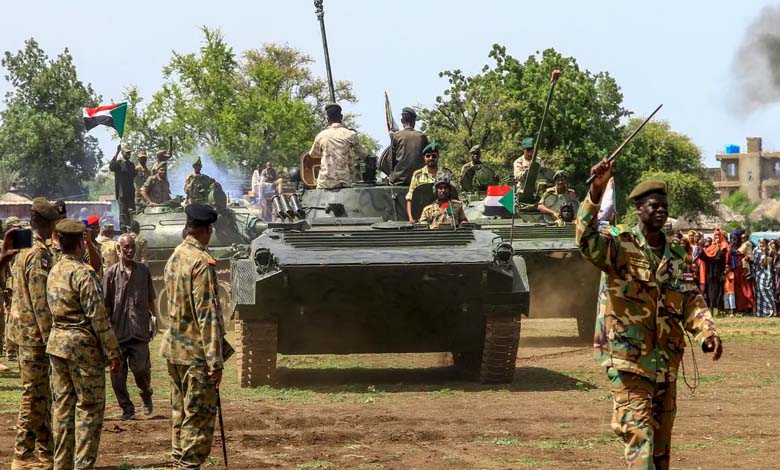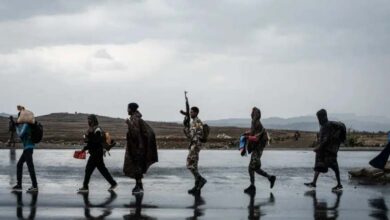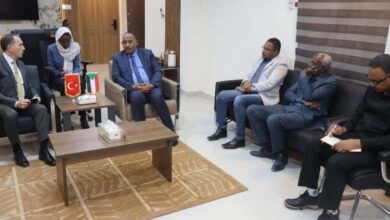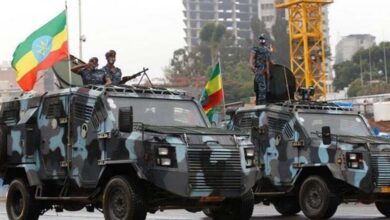Experts identify reasons for the collapse of the Sudanese Army

Sudanese experts and politicians have identified the reasons behind the defeats suffered by the Sudanese army, the collapse of its ranks in the face of the Rapid Support Forces, and the withdrawal of its elements from their positions before the Rapid Support Forces advance, which they described as a “domino effect.”
They pointed out the consequences of this, including the loss of several positions and cities by Sudanese army units and battalions, thus changing the current control map of Sudan.
Experts stated that there are several reasons that led to this situation, including the politicization of the army in favor of the “Islamists” and the exclusion of competencies based on “loyalties,” as well as the lack of a realistic vision for the war by the army when it pledged to eliminate the Rapid Support Forces within weeks.
They also mentioned the withdrawal of groups within the armed forces from areas under their control without fighting and the preoccupation of army leaders and officers with economic and commercial activities over the past years, distancing them from military life and all that it entails.
A former officer in the Sudanese armed forces, who requested anonymity, said that the politicization of the army by the “Islamists” did not start with this war; it has been ongoing for decades, leading Sudan to this situation.
He criticized the “transformation of the institution responsible for protecting the nation, the citizens, and national security into a branch of the Muslim Brotherhood, and the implementation of a systematic plan to exclude competencies, which have been absent from the army since the mid-1990s.”
The former officer explained that “training, planning, task distribution, operational development, and similar matters have not been practiced at all in the Sudanese army for years for several reasons, including the fact that the leadership is not centralized, and there are units and battalions led by elements or individuals who are not military and entirely outside the military institution.”
He added, “Commanders or officers who have studied at the military college and received training and experience, even if limited, may receive military orders from an uneducated person who has spent his life in guerrilla wars or in extremist groups and has been imposed on them as a leader.”
He considered the achievements of the Rapid Support Forces to be natural given the state of the Sudanese armed forces over the past decades.
Osman Ibrahim, a member of the founding congress of the Coordination of Civil Democratic Forces in Sudan, “Tagaddum,” attributed the collapse of the Sudanese army forces in the face of the Rapid Support Forces to several reasons, including the lack of a genuine military intelligence apparatus and the absence of infantry forces effectively controlling the ground, unlike the Rapid Support Forces.
He also pointed out the army’s heavy reliance on air power without support for its objectives on the ground, as well as the tendency of many army leaders and officers to engage in commerce in areas such as charcoal, firewood, petroleum products, and livestock, distancing them entirely from “military life.”
He added that it is well known among Sudanese that all the premises of army units and battalions have become mere signs, with no training or officers and commanders setting combat plans and tactics, as their focus has shifted to commerce.
Ibrahim mentioned that the army did not have a realistic vision of the war from the start, and this became evident with the onset of battles and statements about eliminating the Rapid Support Forces within a week.
He explained, “Unfortunately, this statement trapped many civilians, and thousands of them lost their lives because they believed this false narrative, ultimately paying the price for the war between the two parties.”
The African Center calls on the army and the Rapid Support Forces to release detainees.
Ibrahim also expressed his astonishment at the justifications for the withdrawal of the armed forces from areas under their control for reasons unrelated to reality.
He explained that what happened at the “Al-Mazmoum” site indicates the small number of effective fighters within the army ranks and the lack of military training and qualified expertise for planning and strategy setting by those responsible for the armed forces.
He confirmed that the “politicization” of the Sudanese army and the exclusion of competencies based on “loyalties” illustrate the extent of the “Islamists'” control over decision-making.
Political analyst Adel Nour said that with the new map in several states, the armed forces are withdrawing like dominoes from positions even before engaging with the Rapid Support Forces.
-
Following the al-Assad’s method, the Rapid Support Forces are bombing civilian areas with explosive barrels
-
A bloody day in Sudan with intensified battles between the army and the Rapid Support Forces
Nour considered what is happening to the Sudanese army as a reflection of the decline in the armed forces, a result of a regime spanning over 30 years, which has filled important positions and roles based on a single qualification: loyalty to “political Islam” groups.
He explained that it was natural for the military institution to lack any updates or the formation of cadres with experience and knowledge of the latest military sciences, resulting in assessments that were not based on any solid foundations, leading to successive defeats and severe blows to the army.












